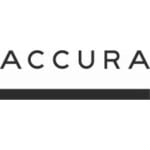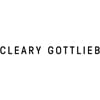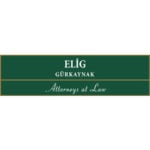-
What is the relevant legislative framework?
The legislative framework for cartels in Portugal is established by Law 19/2012, of 8 May (Competition Act), as amended by Law 23/2018 of 5 June, Decree-Law 108/2021 of 7 December, and Law 17/2022 of 17 August.
Article 9 of the Competition Act prohibits (i) agreements between undertakings, (ii) concerted practices between undertakings, and (iii) decisions by associations of undertakings, when their object or effect is to prevent, distort, or significantly restrict competition within the whole or part of the national market. This article mirrors the prohibition outlined in Article 101(1) of the Treaty on the Functioning of the European Union (TFEU) and additionally prohibits the inclusion of best-price clauses in agreements between intermediaries using electronic platforms and suppliers in the tourism sector.
Article 10 of the Competition Act, aligned with Article 101(3) of the TFEU, provides a framework for justifying the prohibited practices specified in Article 9. These practices may be exempted if their efficiencies contribute to the improvement of production or distribution of goods or services, or foster technical or economic development.
To qualify, specific cumulative criteria must be met:
- consumers must receive a fair share of the resulting benefit;
- restrictions must be indispensable to achieve the efficiencies; and
- it must not be possible to eliminate competition in a substantial part of the market for the relevant products.
As cartels represent serious infringements of competition law, exemptions for such practices will be granted only in exceptional cases.
The Portuguese Competition Authority (PCA) has adopted additional regulations and guidelines applicable to cartels, including: (i) Regulation 747/2024 on the procedure for obtaining immunity or reduction of fines (Regulation 747/2024) (ii) guidelines on the methodology of application of fines (issued in July 2024); and (iii) guidelines on the handling of antitrust proceedings (issued in December 2023).
-
To establish an infringement, does there need to have been an effect on the market?
Article 9 of the Competition Act prohibits agreements and practices whose object or effect is to prevent, distort, or significantly restrict competition. If a cartel practice is deemed an infringement by object – as is often the case – it is not necessary to demonstrate its effect on the market in other to establish an infringement.
-
Does the law apply to conduct that occurs outside the jurisdiction?
Yes. Pursuant to Article 2(2) of the Competition Act, a conduct occurring outside of Portugal may fall under the scope of the Competition Act if it has, or may have, the effect of restricting competition within the national market.
-
Which authorities can investigate cartels?
The PCA, established in 2003, is the public entity responsible for investigating cartels in Portugal. Its governance framework is outlined in its bylaws, set out in Decree-Law 125/2014, of 18 August. The PCA operates as an independent and autonomous authority, with sanctioning, supervisory and regulatory powers. Specifically in relation to the authority’s independence, the government cannot make recommendations or issue directives to the PCA’s board of directors regarding its activities or strategic priorities, which are set solely by the PCA.
The PCA can also cooperate with sectoral regulatory authorities in the enforcement of competition legislation specifically for activities subject to sectoral regulation.
-
How do authorities typically learn of the existence of a potential cartel and to what extent do they have discretion over the cases that they open?
In recent years, leniency applications and complaints have served as the primary triggers for cartel investigations.
Additionally, the PCA proactively initiates investigations on its own initiative (ex officio) if it has reasonable grounds for suspecting of an anticompetitive practice. The PCA holds significant discretion in selecting cases to pursue, considering factors such as the nature of the conduct, its impact on the market and available evidence. The decision to initiate an investigation may be influenced by its priorities, resources and strategic objectives.
The PCA has set up online tools to report anticompetitive practices, including a whistleblower tool that allow individuals or undertakings to report anticompetitive practices. The PCA may assign different levels of priority to the matters it is asked to analyse and is not obliged to investigate all potential restrictive practices of which it becomes aware.
-
What are the key steps in a cartel investigation?
(i) How an investigation is initiated
Pursuant to Article 17 of the Competition Act, the PCA can initiate an investigation in three ways: (i) following a complaint (which may be made via the PCA’s online complaints portal and anonymously); (ii) on its own initiative (ex officio); or (iii) following a leniency application.
(ii) Decision to open formal proceedings
If the PCA decides to open formal proceedings, they will be conducted in two phases: (i) an investigation phase, and (ii) an enquiry phase.
(iii) Investigation phase
The investigation phase can initially last up to 18 months from the opening of the proceedings. However, this timeframe is indicative and may be extended if necessary.
During the investigation phase, the PCA usually undertakes a variety of evidence-gathering activities. Typically, it is while conducting these activities that the investigated undertakings become aware of the formal proceedings.
In cartel investigations, the initial investigatory measure typically consists of dawn raids. Following a dawn raid, the PCA may address further requests for information, question relevant people. It is also usual for the PCA to summon the undertakings investigated to discuss the facts of the case and possible outcomes, especially if a settlement is possible.
At the conclusion of this phase, the PCA has several options: (i) terminate the investigation if there is insufficient evidence for a conviction; (ii) close the proceedings by issuing a settlement decision; (iii) terminate the investigation by adopting a decision imposing specific conditions, or (iv) proceed with the investigation by initiating its second stage, the enquiry phase, by issuing a Statement of Objections (SO) to the undertakings under investigation.
(iv) Enquiry phase
The enquiry phase typically extends up to 12 months from the notification of the SO, but the PCA may also extend the duration of this phase.
During the enquiry phase, the undertakings under investigation have the right to submit their written defence within no less than 30 working days from receiving the SO. This period can be extended if there are valid reasons. Additionally, the investigated undertakings may request further evidence-gathering measures they deem necessary and/or an oral hearing, where the undertaking concerned offers its defence orally in a hearing conducted by the case handlers.
While the PCA typically does not conduct additional evidence-gathering, it reserves the right to do so at any point during the enquiry phase, namely after the undertakings concerned submit their own written (or oral) defences. If such measures result in a significant alteration to the initial charges, the PCA must issue a new SO.
(v) Final decision
The formal proceedings conclude with a final decision from the PCA. The decision may have one of several outcomes: (i) declaring the existence of an anticompetitive practice, which leads to the imposition of a fine, unless the practice is deemed justified; (ii) imposing a fine in settlement proceedings; (iii) setting conditions for the undertakings; (iv) concluding the case without imposing any conditions.
-
What are the key investigative powers that are available to the relevant authorities?
The PCA has the following key investigative powers:
(i) Interviews and requests for information
The PCA can interview any individual or entity, including third parties and public authorities, and request any documents and/or information deemed relevant for investigating the facts of a case. Typically, these requests are issued in writing. While there is a general obligation to cooperate with the PCA, respondents have the right to refuse to answer questions that may lead to self-incrimination.
(ii) Search and seizure procedures (dawn raids)
The PCA can carry out dawn raids either with or without prior notice. For conducting unannounced dawn raids, the PCA is required to obtain a judicial warrant issued in advance. This warrant must be issued by the competent judicial authority (typically, a judge).
Until 2023, the PCA customarily obtained judicial warrants from public prosecutors. However, since March 2023, the Constitutional Court has repeatedly ruled that certain provisions in the Competition Act allowing the PCA to conduct searches and seize emails with authorisation solely from a public prosecutor, are unconstitutional.
Dawn raids can be conducted at the premises, land or means of transport either of undertakings or associations of undertakings or of partners, members of management bodies or other individuals associated with these entities. These procedures can include all forms of written materials and documentation, regardless of their format or storage method. During a dawn raid, the PCA has the power to request access to documents and require explanations for any such materials. The PCA can also make copies of any relevant documents. Typically, a copy of all documents taken is provided to the parties involved at the conclusion of the dawn raid.
While conducting a dawn raid, and to the extent strictly necessary, the PCA has the power to seal any business premises where written records or other documentation are or might be located, including the media storing them, such as computers and other electronic data storage devices.
Non-cooperation or obstructing the PCA’s exercise of its powers – such as supplying inaccurate, incomplete and misleading information – can result in the imposition of fines. Individuals may face fines ranging from EUR 1,020 to EUR 5,100.
In addition, failing to cooperate with the PCA during a dawn raid can lead to criminal liability for obstructing an investigation by a public authority.
-
On what grounds can legal privilege be invoked to withhold the production of certain documents in the context of a request by the relevant authorities?
The Statutes of the Portuguese Bar Association state that legal privilege includes all information that lawyers become aware of while working or providing services and any documents related to those facts.
Despite this, the PCA has adopted a narrow and debatable view of legal privilege, arguing that it only covers documents containing legal advice. Additionally, in recent years, the PCA has claimed the authority to examine emails shared between an undertaking and its lawyers to decide if those communications fall under legal privilege. No distinction is made between external and in-house lawyers, as long as they are active members of the Portuguese Bar Association.
-
What are the conditions for a granting of full immunity? What evidence does the applicant need to provide? Is a formal admission required?
The leniency programme is set out in (i) articles 75 to 82 of the Competition Act, which set out the criteria for leniency, and (ii) Regulation 747/2024, which sets out the procedures for obtaining immunity or reduction of fines.
The first company to inform the PCA of its participation in a cartel may be granted complete immunity from fines. To achieve this, it must supply the PCA with information enabling it to carry out a dawn raid or confirm a competition law infringement, provided the authority lacks adequate information to request a search warrant for a dawn raid or to uncover such anticompetitive behaviour, or has not yet conducted a dawn raid. Directors, managers and individuals in equivalent roles within the business units involved in the cartel may also receive full immunity.
To obtain immunity, the applicant must:
- immediately cease involvement in the cartel (unless otherwise directed by the PCA);
- collaborate with the PCA in its investigation;
- not have compelled other companies to join the practice;
- refrain from destroying, falsifying, or concealing information or evidence linked to the breach; and
- avoid disclosing the intent or content of the waiver request except to the European Commission, another national competition authority, or competition authorities in third countries.
Leniency applications can be submitted in either writing or oral form, and in Portuguese or English. In specific and well-justified circumstances, applicants can use a summary application template for immunity from fines.
-
What level of leniency, if any, is available to subsequent applicants and what are the eligibility conditions?
Applicants that do not meet the immunity criteria (such as subsequent leniency applicants), but nevertheless provide information and evidence on an infringement that has significant added value, may be granted a fine reduction. These applicants must also comply with criteria i), ii), iv) and v) above.
Fine reductions are available according with the following levels:
- first applicant: from 30% to 50%;
- second applicant: from 20% to 30%;
- subsequent applicants: up to 20%.
These statutory percentages are reduced by half if the leniency application is submitted after the issuance of the SO.
-
Are markers available and, if so, in what circumstances?
Yes. Markers are available to ensure ranking by the order in which leniency applications are received. Once the PCA receives the leniency application, it can grant the applicant a marker, either at its own request or on the initiative of the PCA. This marker allows a period of at least 15 days for the applicant to complete its request with the remaining details.
To qualify for a marker, the applicant must provide at least the following information:
- its name and address;
- information relating to the participants in the alleged cartel;
- information on the products and/or services concerned, the affected territories and an estimate of the duration and nature of the alleged cartel;
- information on any other leniency applications; and
- the rationale for its marker request.
Failure to complete the initial request will result in the rejection of the leniency application. Any documents provided will either be returned to the applicant or, if expressly requested, kept by the PCA for evaluation under the cooperation criteria.
-
What is required of immunity/leniency applicants in terms of ongoing cooperation with the relevant authorities?
Immunity/leniency applicants must fully cooperate with the PCA throughout the investigation to be considered for immunity or a fine reduction. As part of this cooperation, applicants are required to provide complete and accurate information or evidence to which they have access and answer any question that may help clarify the facts. Additionally, applicants must avoid any actions that could impede the investigation, such as destroying, falsifying, or suppressing information).
Immunity/leniency applicants are also subject to ongoing confidentiality obligations, unless the PCA explicitly releases them from this obligation in writing.
-
Does the grant of immunity/leniency extend to immunity from criminal prosecution (if any) for current/former employees and directors?
Pursuant to Article 79 of the Competition Act, the leniency programme is available to individuals who are liable for competition law infringements in similar terms to those offered to undertakings, and follows a similar procedure, provided these individuals cooperate fully and continuously with the PCA. This includes directors, managers and individuals in equivalent roles in the business units involved in the cartel. Individuals can apply for leniency on behalf of the company or individually.
-
Is there an ‘amnesty plus’ programme available in respect of evidence provided to prove additional infringements?
Portugal has not had an “amnesty plus” programme since the Competition Act came into effect in 2012.
-
Does the investigating authority have the ability to enter into a settlement agreement or plea bargain and, if so, what is the process for doing so?
The PCA may initiate settlement procedures under the Competition Act, either on its own initiative or upon request of the undertaking concerned. Nonetheless, the PCA holds substantial discretion in determining if a case is apt for settlement and in selecting cases for settlement based on the discussions conducted. No court approval is necessary.
Settlement discussions may begin either before or after issuance of the SO. Typically, the PCA is more inclined to enter into settlement discussions at the earlier investigative stages since it promotes procedural efficiency and saves resources.
Hybrid settlements are permitted in Portugal and have already received PCA approval.
-
What are the key pros and cons for a party that is considering entering into settlement?
When settlement discussions succeed, undertakings receive a reduction in the fine that would otherwise be imposed. Since the Competition Act does not specify the reduction amount, the undertakings concerned do not know the exact reduction upfront. Any settlement reduction can be additional to potential leniency reduction. Settlement can also expedite administrative proceedings, consequently lowering the undertakings’ own case costs.
Settling can be beneficial, as the PCA’s decision will be considerably less exhaustive, which might potentially influence follow-on damage claims.
However, undertakings that choose to settle must accept liability for the infringement and renounce their right to challenge their involvement and responsibility for the infringement. They must also renounce their right to judicial review concerning the acknowledged or uncontested facts and their legal qualification (but not in relation to the fine imposed by the PCA, which the settling undertakings may appeal). Consequently, settlement might restrict the undertakings’ position before other authorities and civil claimants. Other potential issues concerning reputation and ongoing business relationships should also be considered when considering entering into settlement discussions with the PCA.
-
What is the nature and extent of any cooperation with other investigating authorities, including from other jurisdictions?
At the national level, the PCA works closely with sector-specific regulators on competition law issues. Both the PCA and sector regulators are required to promptly share information with one another when they identify activities that might represent anticompetitive infringements. Additionally, the PCA has established memoranda of understanding with various entities, including INFARMED (the National Authority for Medicines and Health Products) and IMPIC (the Institute of Public Markets, Real Estate and Construction).
In Europe, the PCA actively collaborates with other competition law enforcers, particularly through the European Competition Network (ECN), which includes the European Commission and other EU national competition authorities. The PCA is also part of the European Competition Authorities (ECA) and maintains bilateral relations with European competition authorities, most notably with Spain’s CNMC.
The PCA is actively involved in international cooperation with organisations like the OECD and UNCTAD. It also participates in multilateral cooperation networks such as the International Competition Network (ICN) and the Lusophone Competition Network. The latter network comprises the entities responsible for competition matters in Portuguese-speaking countries: Angola, Brazil, Cape Verde, Guinea-Bissau, Mozambique, Portugal, São Tomé e Príncipe, and Timor-Leste, and the PCA is actively engaged in providing assistance, namely in terms of know-how and training, to these authorities. Additionally, the PCA engages in bilateral cooperation with competition authorities such as the State Administration for Industry and Commerce of the People’s Republic of China, the Moroccan Competition Council, and the Turkish Competition Authority.
-
What are the potential civil and criminal sanctions if cartel activity is established? How often are civil sanctions and/ or criminal penalties imposed in practice following a finding of an infringement?
In Portugal cartels are considered administrative offences (misdemeanours), instead of criminal offences. Therefore, only civil or administrative sanctions may be triggered. The Competition Act is complemented on a subsidiary basis by the Code of Administrative Procedure (Decree-Law 442/91) and the Misdemeanours Regime (Decree-Law 433/82).
Civil sanctions:
Cartel practices are null and void pursuant to Article 9(2) of the Competition Act. Both legal entities and individuals may face damage claims (see Questions 7.1 and 7.2 below).
Administrative sanctions:
The PCA can impose fines up to 10% of the turnover of the entire group or, for associations of undertakings, up to 10% of the combined turnover of all associated undertakings in the year preceding the PCA’s final decision. This statutory limit is based on the turnover of the ‘economic unit’, which encompasses the entire corporate group behind the infringing entity. However, this calculation cannot result in a maximum fine that exceeds what would be determined by referring to the turnover of the economic year prior to the commission of the infringement.
For individuals, fines can be up to 10% of their annual income in the undertaking concerned in the last full year of cartel involvement.
These statutory limits for fines may be increased (i) if the economic benefit obtained from the infringement is greater than the maximum applicable fine, up to the amount of the benefit, provided that it does not exceed one-third of the maximum applicable threshold (i.e., 13.33%), and (ii) in the case of multiple concurrent infringements, up to double (i.e., up to 20%).
The PCA usually demands that companies or associations in breach of competition laws publish extracts from the final decision in the Portuguese Official Journal and a national newspaper. These entities must also cease breaching competition laws and might be disqualified from public tenders for up to two years.
-
What factors are taken into account when the fine is set? Does the existence of an effective corporate compliance strategy impact the determination of the fine? In practice, what is the maximum level of fines that has been imposed in the case of recent domestic and international cartels?
The framework for the setting of fines for competition infringements is set out in the Competition Act and the PCA’s guidelines on the method for setting fines, published in July 2024.
Several factors can influence fine amounts: (i) the gravity and duration of the infringement; (ii) the affected market’s nature and dimension; (iii) the extent of the involvement of the undertaking concerned; (iv) its economic conditions; (v) its cooperation during the investigation; and (vi) history of prior infringements. The PCA calculates the exact fine amount based on its guidelines. Recent PCA rulings reveal a pattern of increasingly strict penalties against cartels, often imposing fines approximately equal to 10% of the Portuguese entity’s turnover involved in the infringement.
-
Are parent companies presumed to be jointly and severally liable with an infringing subsidiary?
Parent companies holding 90% or more of shares in a subsidiary may be presumed to share joint and several liability for infringements committed by the subsidiary. This means the parent company can be held accountable for the subsidiary’s actions. However, this presumption can be challenged and overturned with adequate evidence.
-
Are private actions and/or class actions available for infringement of the cartel rules?
Yes. The legal framework for this regime is established in Law 23/2018 (Private Enforcement Act), which transposed Directive 2014/104/EU (Private Enforcement Directive).
Both private and class actions are available for infringement of the Competition Act. These types of legal actions have been increasingly prevalent in Portugal. In certain instances, the damages sought in these civil cases have greatly exceeded the fines imposed during administrative proceedings.
-
What type of damages can be recovered by claimants and how are they quantified?
Claimants are entitled to seek compensation for any damages suffered due to a cartel, including direct losses, lost profits, and interest. The aim is to restore them to the financial state they would have been in had the infringement not taken place. Claimants are not permitted to receive more than their actual losses. Overcompensation is prohibited.
-
On what grounds can a decision of the relevant authority be appealed?
The undertakings concerned can challenge PCA decisions by lodging an appeal to the Portuguese Competition, Regulation and Supervision Court (CRSC, or Competition Court). Further appeals focusing on legal arguments of CRSC decisions can be made to the Lisbon Court of Appeal.
An appeal against a PCA decision imposing a fine may be lodged at the Competition Court (acting as a court of first instance) on points of fact and law. The Competition Court has full jurisdiction over the PCA’s decisions. An additional appeal on points of law may be lodged to the Lisbon Court of Appeal against judgments of the Competition Court.
The CRSC typically aligns with the PCA’s decisions, although it often lowers the fines imposed. Notably, in 2023, the CRSC issued a groundbreaking judgment, fully exonerating the undertakings concerned. This marked the first instance of such a ruling since the court’s establishment in 2013.
Interlocutory decisions issued by the PCA can also be appealed, typically concerning procedural errors, especially during dawn raids, access to file and confidentiality issues.
-
What is the process for filing an appeal?
To challenge a PCA decision that imposes a fine, the appeal must be filed with the CRSC within 60 working days from the date the decision is served. The appeal must first be submitted to the PCA, which must forward it, along with the case file, to the CRSC. This appeal does not have suspensive effects, but offering a bank guarantee of 50% of the fine might prevent immediate payment if the CRSC accepts it.
For appeals against interlocutory decisions by the PCA, the appeal must be lodged within 20 working days from when the decision is served.
-
What are some recent notable cartel cases (limited to one or two key examples, with a very short summary of the facts, decision and sanctions/level of fine)?
In the beginning of 2024, the PCA announced it had imposed a total fine of EUR 6.889.300 on five companies for engaging in a cartel related to public procurement for teleradiology services to hospitals and hospital centres across Portugal. The PCA’s investigation revealed that these companies engaged in bid-rigging to distort the outcomes of public procurement processes for teleradiology services by pre-selecting the winning bidder. Through horizontal collusion, they coordinated their future bid prices to ensure the selected company would win the bid. The PCA found that their actions segmented the national market, resulting in increased costs and diminished competition, negatively impacting the procurement entities. Two companies opted to cooperate and settled with the PCA before the final decision. For the remaining three companies, there is no publicly available information on whether an appeal was lodged.
On another case, three companies from a multinational technology consulting group were held liable and fined in a total fine of EUR 3,092,000 for engaging in bilateral “no-poach” agreements over a period of, at least, seven years. These companies mutually committed to refraining from recruiting and/or spontaneously approaching each other’s employees, restricting competition in the labour market. In the same proceeding, the PCA had previously sanctioned three other companies operating within the same market – two multinational companies and one national consultancy firm in the technology sector – for similar conduct between 2014 and 2022. These three companies opted for the settlement procedure. As a result of their cooperation during the investigation, their fines were reduced to a total of EUR 4,082,000. The final decision was issued in February 2025 and there is no publicly available information regarding an appeal.
-
What are the key recent trends (e.g. in terms of fines, sectors under investigation, any novel areas of investigation, applications for leniency, approach to settlement, number of appeals, impact of hybrid working in enforcement practice – e.g. dawn raids of domestic premises, ‘hybrid’ in-person/virtual dawn raids, access to personal devices, etc.)??
Since 2023, the PCA has reduced its enforcement activity. In 2022, the PCA set a record by imposing fines totalling EUR 488 million. However, in 2023, this amount significantly decreased to EUR 34.3 million and then rose to EUR 67.2 million by 2024.
This decline in activity compared to previous years can be partially attributed to the shift in PCA leadership in 2023, and most importantly, to recent rulings from the Constitutional Court concerning the methods of seizure of correspondence during dawn raids, which had been a longstanding point of dispute between undertakings and the PCA, especially in relation to electronic correspondence (emails).
In July 2024, the PCA introduced Regulation No. 747/2024, detailing procedures for applications for exemption or reduction of fines in the context of administrative offence cases involving agreements or concerted practices between two or more competing companies. According to the PCA, this regulation aims, among other objectives, to increase the number of requests for exemption or reduction of fines and to improve and ensure the efficacy of the respective procedural handling.
The PCA’s cartel enforcement continues to expand to labour markets, particularly to no-poach agreements. The PCA has also been proactive in addressing price-fixing and sales restrictions infringements, initiating investigations and imposing fines on various companies across different sectors.
-
What are the key expected developments over the next 12 months (e.g. imminent statutory changes, procedural changes, upcoming decisions, etc.)?
For 2025, the PCA priorities will focus on several pivotal initiatives, among others:
- tackling harmful anti-competitive practices by strengthening its investigations into damaging practices such as cartels, enhancing the detection mechanisms. Priority will be given to horizontal practices impacting public procurement and market interactions;
- emphasising the role of competition in boosting contestability within digital markets, including the generative AI sector, while collaborating closely with the European Union to apply relevant legislative tools like the Digital Markets Act;
- investing in innovative tools incorporating artificial intelligence to identify illicit practices, supporting effective and timely investigations;
- developing and integrating new internal coordination methodologies, aiming to solidify the economic and legal robustness of its investigations;
- continue reflecting on legislative adequacy, focusing on high-innovation markets to adapt the current framework – this involves addressing regulatory gaps to sustain dynamic competition.
In the upcoming months, significant progress is expected in various ongoing competition infringement cases involving different companies, sectors, and infringements. These cases share a common element: the PCA used search warrants issued by a public prosecutor to seize electronic correspondence during dawn raids.
As stated above, since March 2023, the Constitutional Court has repeatedly ruled that certain provisions in the Competition Act allowing the PCA to conduct searches and seize emails with authorisation solely from a public prosecutor, are unconstitutional. In response to these legal rulings, the PCA changed its method and is now obtaining search warrants from a judge.
The legal debate over the seizure of correspondence continues at the CJEU, where similar issues are under examination. With more than three decisions from the Constitutional Court reaching the same conclusion, it’s anticipated that a process for successive abstract review of constitutionality will be initiated. This process could declare the rule unconstitutional with a general binding effect.
We anticipate the issuance of a judgment from the CJEU in preliminary ruling cases C-258/23 to C-260/23, which focus on the legality of actions taken by the PCA during investigations into alleged breaches of national competition laws and Articles 101 and 102 of the TFEU. The CRSC referred the questions to the CJEU, concentrating on the interpretation of Article 7 of the Charter of Fundamental Rights of the European Union. Even after the Constitutional Court’s decision, the debate over electronic correspondence seizure remains active and significant in Portugal.
Furthermore, in 2025, we anticipate developments in various class actions claiming damages for competition law breaches initiated in 2024 before the CRSC. These actions were particularly pursued by the consumer association Ius Omnibus, which has been very active in this area. Given the focus Portugal has received regarding these issues, further developments are anticipated in 2025.
Portugal: Cartels
This country-specific Q&A provides an overview of Cartels laws and regulations applicable in Portugal.
-
What is the relevant legislative framework?
-
To establish an infringement, does there need to have been an effect on the market?
-
Does the law apply to conduct that occurs outside the jurisdiction?
-
Which authorities can investigate cartels?
-
How do authorities typically learn of the existence of a potential cartel and to what extent do they have discretion over the cases that they open?
-
What are the key steps in a cartel investigation?
-
What are the key investigative powers that are available to the relevant authorities?
-
On what grounds can legal privilege be invoked to withhold the production of certain documents in the context of a request by the relevant authorities?
-
What are the conditions for a granting of full immunity? What evidence does the applicant need to provide? Is a formal admission required?
-
What level of leniency, if any, is available to subsequent applicants and what are the eligibility conditions?
-
Are markers available and, if so, in what circumstances?
-
What is required of immunity/leniency applicants in terms of ongoing cooperation with the relevant authorities?
-
Does the grant of immunity/leniency extend to immunity from criminal prosecution (if any) for current/former employees and directors?
-
Is there an ‘amnesty plus’ programme available in respect of evidence provided to prove additional infringements?
-
Does the investigating authority have the ability to enter into a settlement agreement or plea bargain and, if so, what is the process for doing so?
-
What are the key pros and cons for a party that is considering entering into settlement?
-
What is the nature and extent of any cooperation with other investigating authorities, including from other jurisdictions?
-
What are the potential civil and criminal sanctions if cartel activity is established? How often are civil sanctions and/ or criminal penalties imposed in practice following a finding of an infringement?
-
What factors are taken into account when the fine is set? Does the existence of an effective corporate compliance strategy impact the determination of the fine? In practice, what is the maximum level of fines that has been imposed in the case of recent domestic and international cartels?
-
Are parent companies presumed to be jointly and severally liable with an infringing subsidiary?
-
Are private actions and/or class actions available for infringement of the cartel rules?
-
What type of damages can be recovered by claimants and how are they quantified?
-
On what grounds can a decision of the relevant authority be appealed?
-
What is the process for filing an appeal?
-
What are some recent notable cartel cases (limited to one or two key examples, with a very short summary of the facts, decision and sanctions/level of fine)?
-
What are the key recent trends (e.g. in terms of fines, sectors under investigation, any novel areas of investigation, applications for leniency, approach to settlement, number of appeals, impact of hybrid working in enforcement practice – e.g. dawn raids of domestic premises, ‘hybrid’ in-person/virtual dawn raids, access to personal devices, etc.)??
-
What are the key expected developments over the next 12 months (e.g. imminent statutory changes, procedural changes, upcoming decisions, etc.)?














